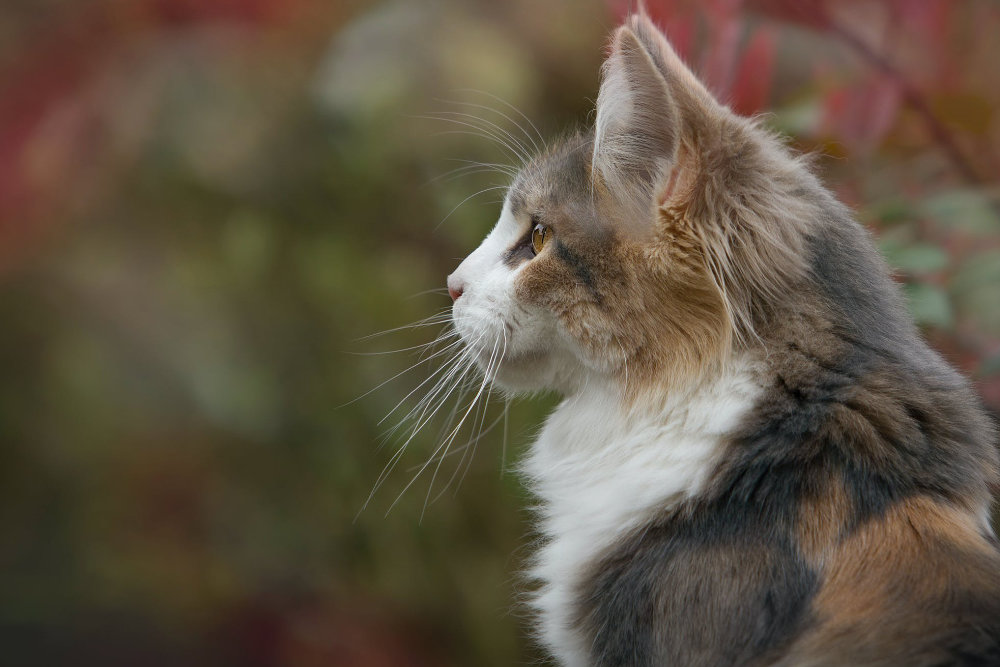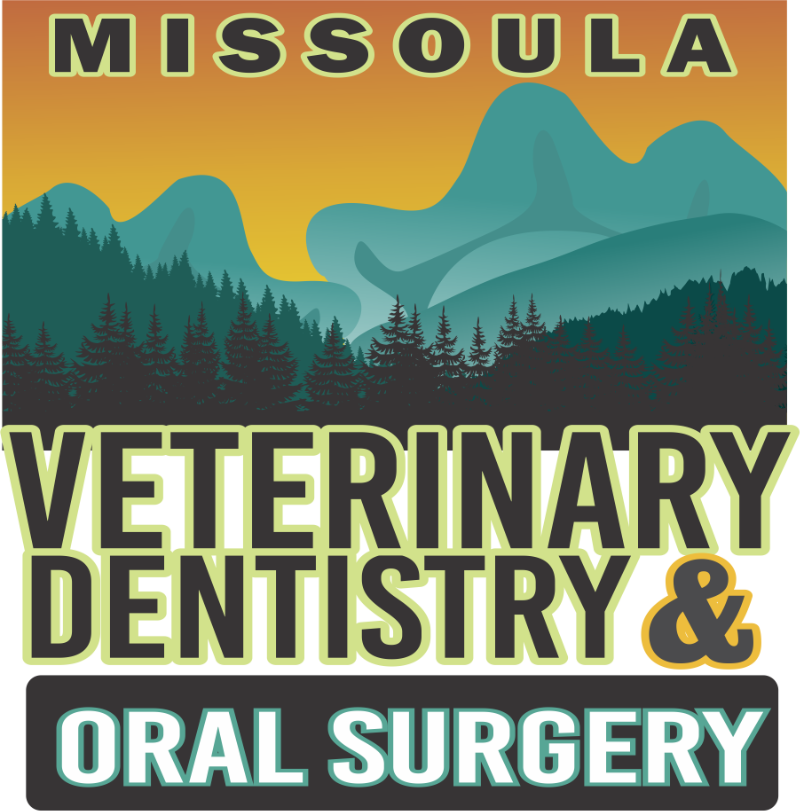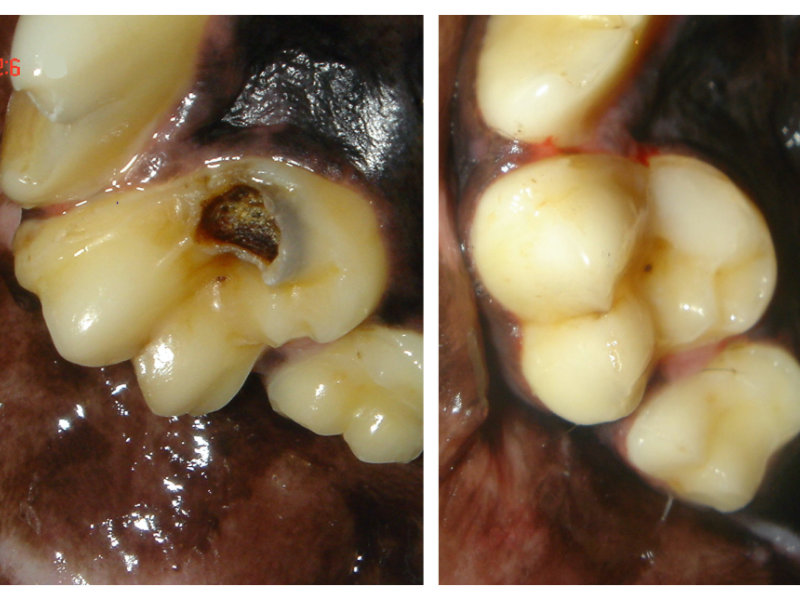
Restorative Dentistry
Just like us, dogs and cats may require restorative dental treatments to repair and renew their oral health. Restorative dental treatments for dogs are not just about repairing teeth; they’re about restoring joy, comfort, and a high quality of life. These treatments go beyond aesthetics, addressing dental issues and ensuring that your pets can enjoy pain-free living and a healthy oral environment.
Fillings and Indirect Pulp Capping
The enamel on dog teeth is a lot thinner than our own, so defects caused by trauma, abnormal development or cavities require timely treatment to prevent bacterial spread to the pulp inside. Caries lesions occur on the chewing surfaces of dog molar teeth and, just like us, can be caused by high sugar treats, most commonly fruit. Other defects in the enamel of dogs’ teeth can occur naturally or from injury and can happen on the face or tip of important teeth. Board certified veterinary dentists™ have years of experience and advanced training to treat these small enamel issues before they become big problems that require endodontic (root canal) therapy or surgery.
Can Cats Get Fillings for Tooth Resorption?
Up to 70% of cats will get tooth resorption in their lifetime, a painful condition of the teeth resulting in holes in the enamel, dentin and roots of cat teeth. This is a process initiated by each pet’s body, and cannot be turned off once it starts in a given tooth. If we could stop feline tooth resorption with restorative dentistry, we would. Unfortunately, putting a filling in a resorptive lesion won’t stop the tooth from breaking down or the inflammation of the sensitive pulp. The only treatment for feline tooth resorption is surgical removal of the affected teeth.
Understanding Discolored Teeth in Dogs & Cats
Discolored teeth in dogs and cats can be indicative of several underlying dental issues that require attention from a veterinarian. While some discoloration may be a normal occurrence in aging pets, it can also be a sign of more serious problems that require treatment to prevent further complications.
Causes of Discolored Teeth in Dogs and Cats
There are several causes of discolored teeth in dogs and cats, including:
- Tartar and Plaque Buildup: Tartar and plaque buildup can cause teeth to appear yellow or brown. These substances can also lead to gingivitis and periodontal disease, which can lead to tooth loss if left untreated.
- Trauma: Trauma to the teeth, such as from chewing on hard objects or from being hit in the mouth, can cause discoloration. Discoloration of the internal walls of the tooth change colors like healing bruises, but the tooth pulp rarely survives the injury.
- Medications: Certain medications such as antibiotics can cause tooth discoloration in developing teeth as a side effect.

Treatment for Discolored Teeth in Dogs and Cats
Treatment for discolored teeth in dogs and cats depends on the underlying cause. In cases of tartar and plaque buildup, a professional dental cleaning under general anesthesia may be necessary to remove the buildup and restore the teeth to their natural color. If the discoloration is due to trauma, the tooth needs to be evaluated with advanced imaging and will likely require treatment to remove dead or dying pulp, such as root canal therapy, or the tooth itself.
Prevention of Discolored Teeth in Dogs and Cats
While some reasons for discolored teeth may be out of your control, the best way to find and treat discolored teeth in dogs and cats is through regular dental care, including brushing your pet’s teeth daily and providing them with dental chews and toys. Annual dental cleanings by a veterinarian is the safest method to remove any tartar and plaque buildup that may have accumulated over time, and dental radiographs are essential care to look for underlying damage that may be causing pain and inflammation.
Discolored teeth in dogs and cats can be a sign of underlying dental issues that require attention from a veterinarian. Preserving these discolored teeth is the care that a board certified veterinary dentist™ can provide. Regular dental care and annual check-ups can help prevent tartar and plaque buildup and identify any potential issues early on, allowing for prompt treatment and a better outcome for your pet’s overall dental health.



